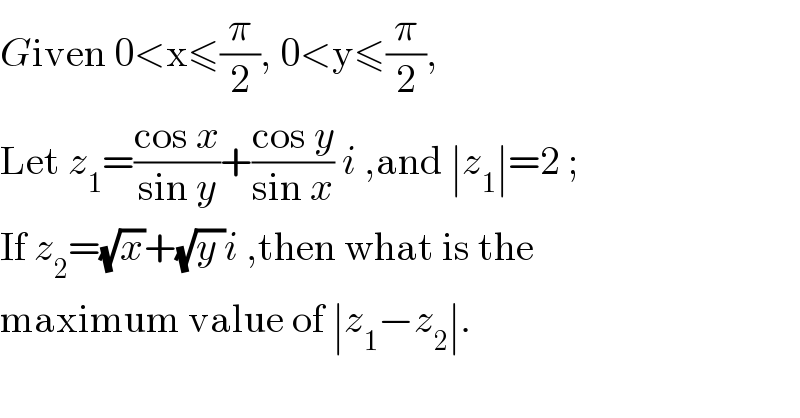
Question Number 107571 by ZiYangLee last updated on 11/Aug/20

$${G}\mathrm{iven}\:\mathrm{0}<\mathrm{x}\leqslant\frac{\pi}{\mathrm{2}},\:\mathrm{0}<\mathrm{y}\leqslant\frac{\pi}{\mathrm{2}}, \\ $$ $$\mathrm{Let}\:{z}_{\mathrm{1}} =\frac{\mathrm{cos}\:{x}}{\mathrm{sin}\:{y}}+\frac{\mathrm{cos}\:{y}}{\mathrm{sin}\:{x}}\:{i}\:,\mathrm{and}\:\mid{z}_{\mathrm{1}} \mid=\mathrm{2}\:; \\ $$ $$\mathrm{If}\:{z}_{\mathrm{2}} =\sqrt{{x}}+\sqrt{{y}\:}{i}\:,\mathrm{then}\:\mathrm{what}\:\mathrm{is}\:\mathrm{the} \\ $$ $$\mathrm{maximum}\:\mathrm{value}\:\mathrm{of}\:\mid{z}_{\mathrm{1}} −{z}_{\mathrm{2}} \mid. \\ $$
